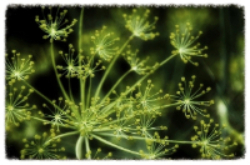By Dara Cantor, MAcOM, L.Ac
 The winter season is an important time in ancient Chinese philosophy, and the winter solstice marked a crucial transition in nature and in human life. Chinese medicine principles are based on the rhythmic cycles of nature. The more we are able to find harmony with nature in our daily habits and activities, the greater health and wellness we can enjoy.
The winter season is an important time in ancient Chinese philosophy, and the winter solstice marked a crucial transition in nature and in human life. Chinese medicine principles are based on the rhythmic cycles of nature. The more we are able to find harmony with nature in our daily habits and activities, the greater health and wellness we can enjoy.
After the harvest and inward movement of autumn, winter is a time of storage and rest. The ancient classic text, the Huang di Ne Jing, written over 2200 years ago, offers some sage advice on how we can best find harmony with the winter season:
“During the winter months all things in nature wither, hide, return home, and enter a resting period[…]This is a time when Yin dominates Yang “ (Maoshing, 6).
Yin and Yang are important concepts in ancient Chinese philosophy and medicine. Yin is a general concept which applies to all things deep, dark, fluid, within, below, contained, consolidated, quiet… while Yang describes movement, activity, light, outward, above, expansive… The Nei Jing reminds us that winter is a time when Yin is dominant, and suggests that we should reflect this in our life and daily activities.
“One should refrain from overusing the yang energy. Retire early and get up with the sunrise, which is later in winter. Desires and mental activity should be kept quiet and subdued. Stay warm, avoid the cold, keep the pores closed. The philosophy of the winter season is one of conservation and storage” (Maoshing, 6).
The Nei Jing goes on to describe various illnesses and afflictions that can result from not following this advice, including weakness, arthritis, allergies, irritability, and degeneration in the spring.
I often remind my patients that this is a time of year to take it easy ‐ this is not a time to maintain the constant activity of the summer. Enjoy the longer nights as a time to rest, read, reflect, and renew your energy. It is a time for both physical rest and renewal as well as mental and emotional renewal. The inward focused energy of winter provides us with an ideal time for reflection and finding resolution. I don’t suggest individuals stop physical activity all together, but I do suggest that they be extra mindful of not over‐extending themselves, and to include more quiet, focused physical practices such as tai ji and yoga. Winter is also a time to shift your diet toward heartier, warming foods such as soups, stew, broths, and root vegetables. (For more on a Chinese medicine philosophy on diet and nutrition, check out my talk at the Seven Corners New Seasons on January 21st!)
Finally, it is important to note that the winter solstice is not only the shortest day of the year, but it also represents the return of Yang. The solstice is the height of Yin, the day at which Yin is the most dominant, and all things are in a state of deep rest
and storage, but at this time the seed of Yang returns and begins to grow. Throughout the rest of winter and into spring, Yang increases, the days get longer, and nature begins a new cycle of growth, expansion and abundance.
Here’s wishing everyone a joyful and peaceful holiday season, and cheers to the return of the light!
(Maoshing, Ni. The Yellow Emperor’s Classic of Medicine. Boston: Shambhala, 1995. Print.)

